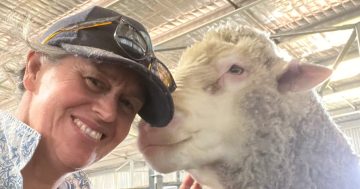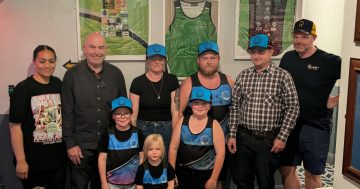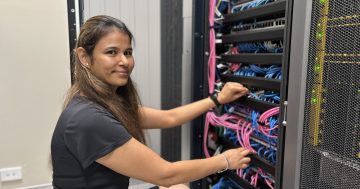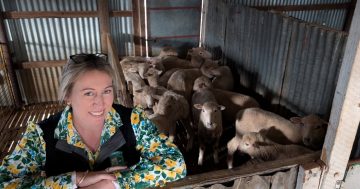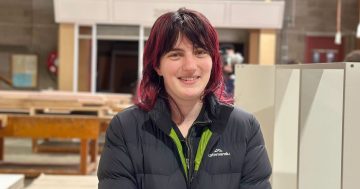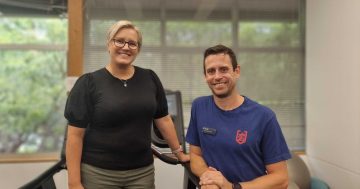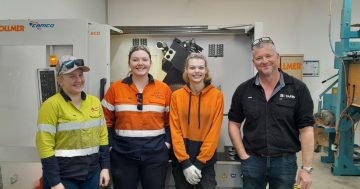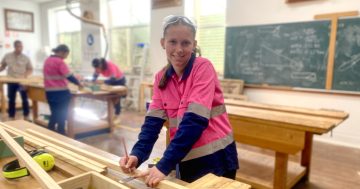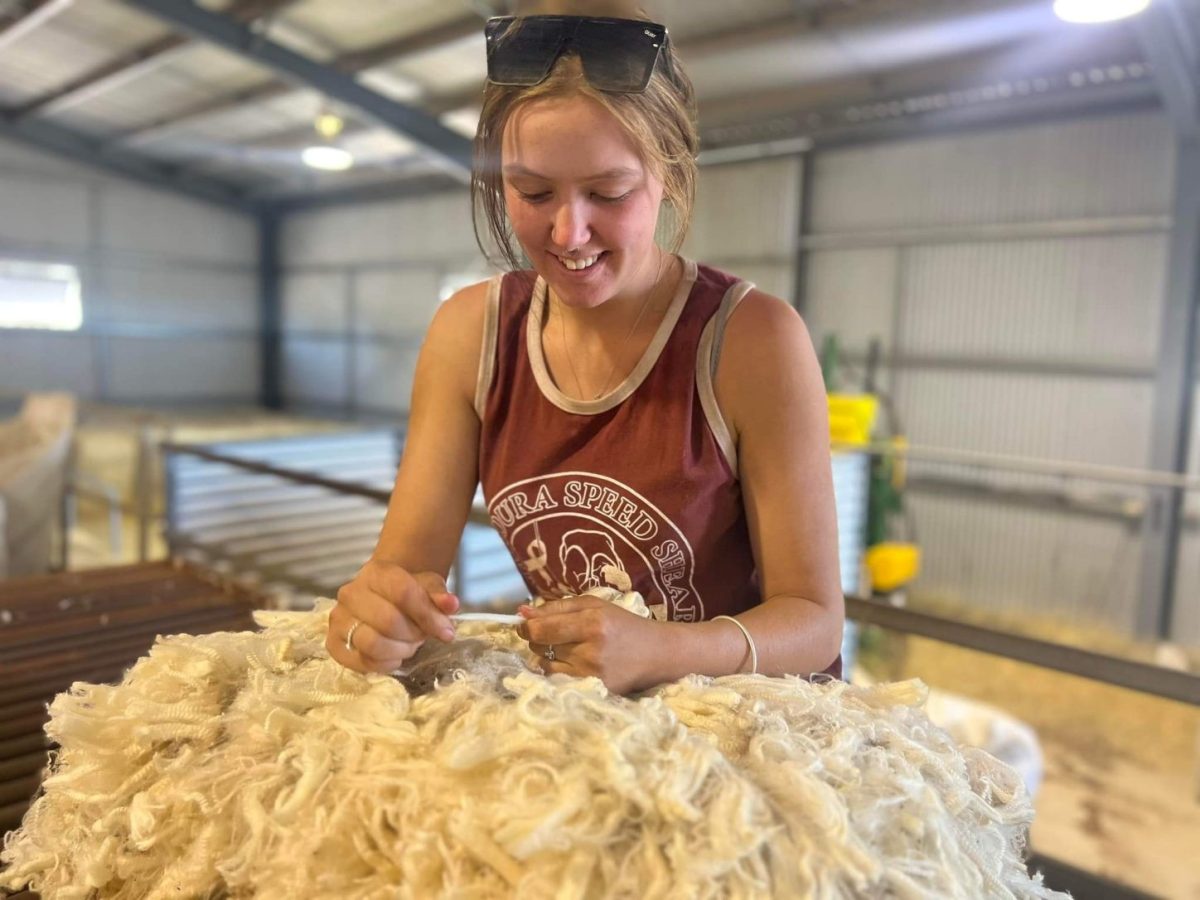
Emilia Browne has graduated from TAFE NSW into a full-time job and has been selected to represent NSW at the prestigious Golden Stencil competition. Photo: Supplied.
Hay is of course home to The Australian Shearer’s Hall of Fame at the iconic Shear Outback and the Western Riverina town continues to play a leading role in the future of our wool industry.
Former Macca’s manager Emilia Browne moved to Hay to study and gain a start in the wool industry and has now been selected to compete in the national wool-classing competition, the Golden Stencil, at the Sydney Royal Easter Show.
“To be selected was beyond amazing,” she said.
“It’s a bit daunting, but I want to get to the top of this industry and I’ll take any opportunity thrown at me.”
The TAFE NSW Certificate IV in Wool Classing gives hands-on experience and expertise that is translating into jobs, with six out of the seven students finding work just weeks after graduating.
Emilia picked up a gig with Willshear Hay and said she had fallen in love with the industry.
“Working in this industry isn’t just a job, it’s a lifestyle, and it’s such a fast-paced, exciting environment,” Emilia said.
“The course was so hands-on and relevant to the job, and my teacher is so invested in our success that she’s become a personal mentor to me.”
Teacher Kayla Garner enjoys sharing her two decades of experience with students and said Emilia’s success demonstrated where you can go if you’re keen.
“You can teach anyone anything and it’s up to that student to run with it and make what they want out of it,” Kayla said.
“She took the bull by the horns, or the sheep, I suppose, and she really was quite a standout.”
Like many in the industry, Kayla got her start as a shed hand during the school holidays and moved on to wool classing through TAFE and was crowned Australian National Wool Handling Champion in 2013.
“I think that we do see a lot of women in the industry taking up usually predominant male roles like shearing and wool pressing and classing,” she said, adding that innovation had improved the working conditions of what was once considered ”back-breaking” work.
“There’s been a lot of work to make the job a little bit easier for everyone so that we can last in the industry a little bit longer,” she said.
“We’re still dealing with not only the physical side of it but also the environmental elements as well with amenities, air conditioning and things like new, innovative ways of bringing the sheep from out of the pen onto the shearing board.”
Kayla said wool-classing students benefitted from hands-on training in sheds across the Riverine Plains, but also developed a solid understanding of the industry.
“You definitely need the hands-on side, but you also need the understanding of the vital role that the wool classing plays in the pipeline,” she explained.
“So understanding your product right through to the end user is where we’re trying to tailor our learning to make sure that they understand it’s not just a matter of putting wool into a grade.
“It’s understanding where it’s coming from, what makes it grow and then the end use for that product.”
Kayla said the success of the latest group of graduates showed the opportunities in the industry.
“It’s a great lifestyle, you get to travel around a lot and it’s good money,” she said.
“I’d recommend it to anyone who likes that on-the-job training and likes to travel and meet new people.
“Give it a crack!”







